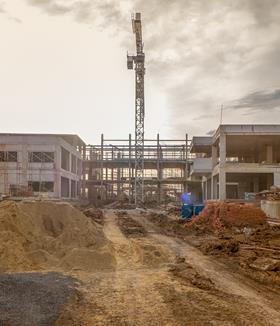ŌĆśSmall firms at risk,ŌĆÖ says Scape chief executive

║├╔½Ž╚╔·TV activity decreased in the run-up to the holiday period despite a slight uptick in July, according to the Office for National Statistics (ONS).
Construction output decreased by 0.8% in the three months to August compared to the previous three-month period, driven by a 2.2% contraction in repair and maintenance work.
New construction work declined by 0.1% in the same period, with a reduction of 6.2% on public building activity.
Mark Robinson, chief executive of Scape Group, said: ŌĆ£Further decline in the coming months risks putting smaller, more vulnerable firms out of business.
ŌĆ£In a no-deal scenario, delays to construction imports will be inevitable, which could stop projects up and down the country in their tracks, wiping out profits for businesses across the sector, and delaying some of our most vital projects.ŌĆØ
Work on public housing proved the most robust, with new build activity up 6.8% on the three-month on three-month comparison, while maintenance work in the sector expanded 3.6%.
The ONS said output picked up by 0.5% in July compared to the previous month, reversing a 0.7% decline in June.
Growth was driven by 7.8% expansion in repair and maintenance of public housing, as well as a 4.4% growth in private housing delivery.
Infrastructure output grew steadily, at 0.2%, but nevertheless remains 12.1% higher than in July 2018.
The sector to grow most over one year is new public housing, by 14.1%, despite an 11.7% decline in activity in July after a busy June.
Private housing saw the biggest contraction in output between July 2018 and 2019, at 12.6%, while public building activity also reduced by 8.8%.
Clive Docwra, managing director of consultant McBains, said: ŌĆ£Although there was a moderate increase in output in July, the longer-term trends show growth on a downward trajectory.
ŌĆ£The continuing Brexit soap opera, the events of which become more bizarre and unpredictable daily, mean that spending decisions will continue to be put on hold until investors are more confident of the road ahead,ŌĆØ he added.
ŌĆ£Meanwhile, the weak pound means the cost of imported materials is squeezing pockets.ŌĆØ




























No comments yet